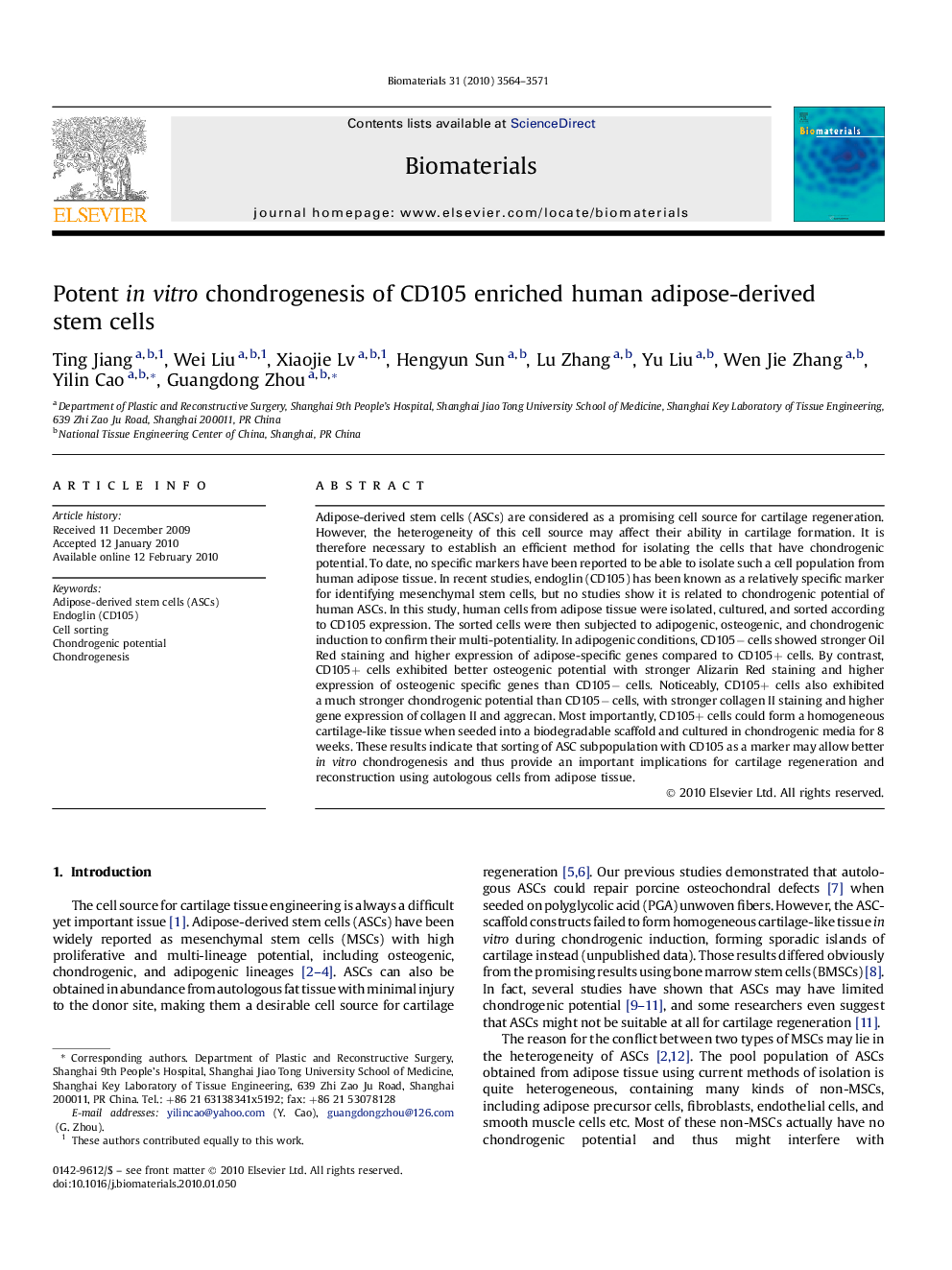| Article ID | Journal | Published Year | Pages | File Type |
|---|---|---|---|---|
| 9709 | Biomaterials | 2010 | 8 Pages |
Adipose-derived stem cells (ASCs) are considered as a promising cell source for cartilage regeneration. However, the heterogeneity of this cell source may affect their ability in cartilage formation. It is therefore necessary to establish an efficient method for isolating the cells that have chondrogenic potential. To date, no specific markers have been reported to be able to isolate such a cell population from human adipose tissue. In recent studies, endoglin (CD105) has been known as a relatively specific marker for identifying mesenchymal stem cells, but no studies show it is related to chondrogenic potential of human ASCs. In this study, human cells from adipose tissue were isolated, cultured, and sorted according to CD105 expression. The sorted cells were then subjected to adipogenic, osteogenic, and chondrogenic induction to confirm their multi-potentiality. In adipogenic conditions, CD105− cells showed stronger Oil Red staining and higher expression of adipose-specific genes compared to CD105+ cells. By contrast, CD105+ cells exhibited better osteogenic potential with stronger Alizarin Red staining and higher expression of osteogenic specific genes than CD105− cells. Noticeably, CD105+ cells also exhibited a much stronger chondrogenic potential than CD105− cells, with stronger collagen II staining and higher gene expression of collagen II and aggrecan. Most importantly, CD105+ cells could form a homogeneous cartilage-like tissue when seeded into a biodegradable scaffold and cultured in chondrogenic media for 8 weeks. These results indicate that sorting of ASC subpopulation with CD105 as a marker may allow better in vitro chondrogenesis and thus provide an important implications for cartilage regeneration and reconstruction using autologous cells from adipose tissue.
